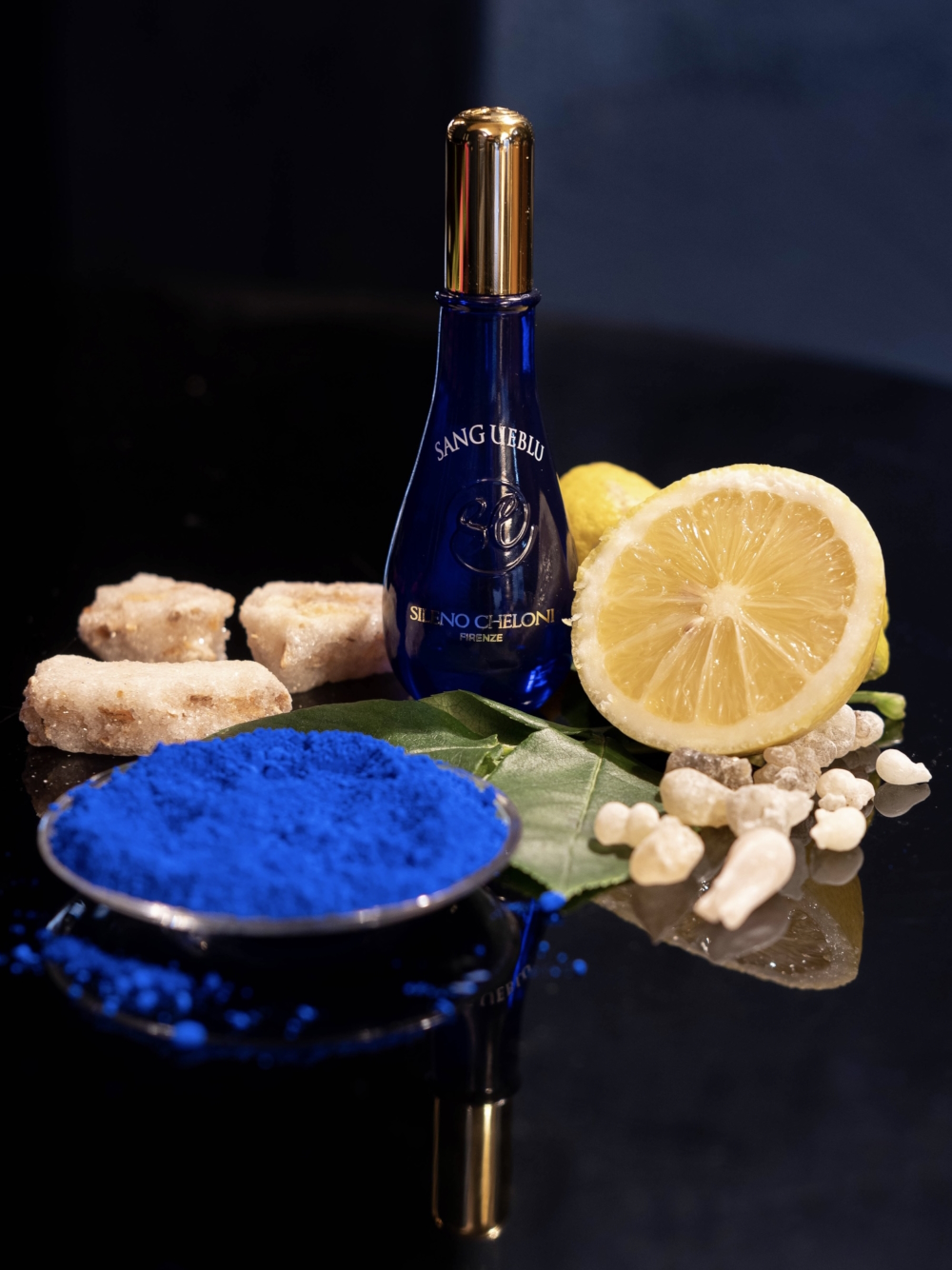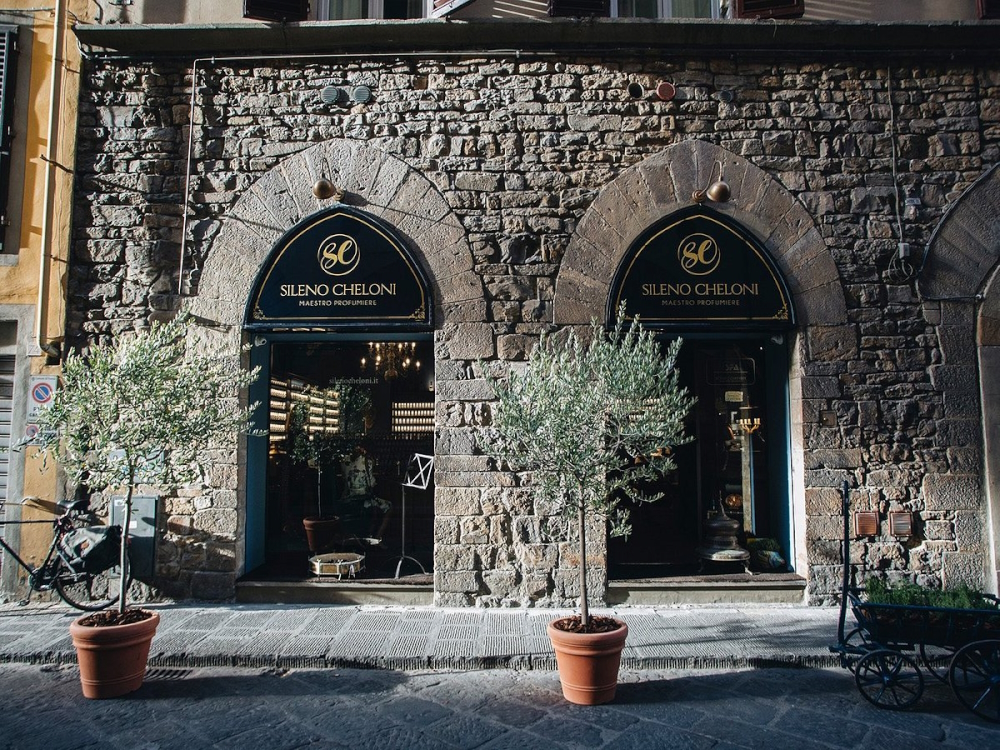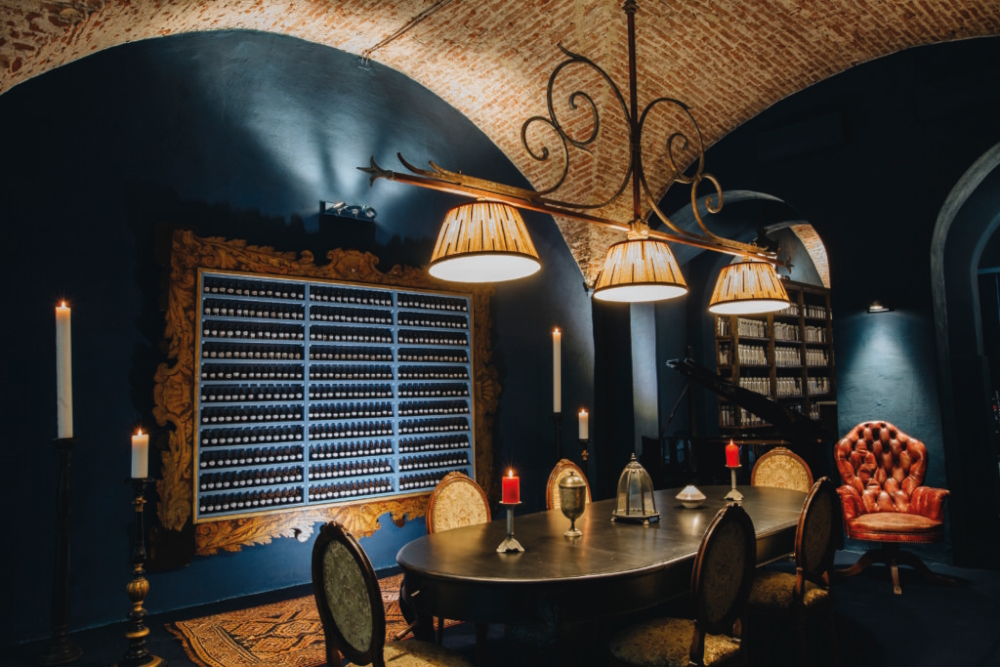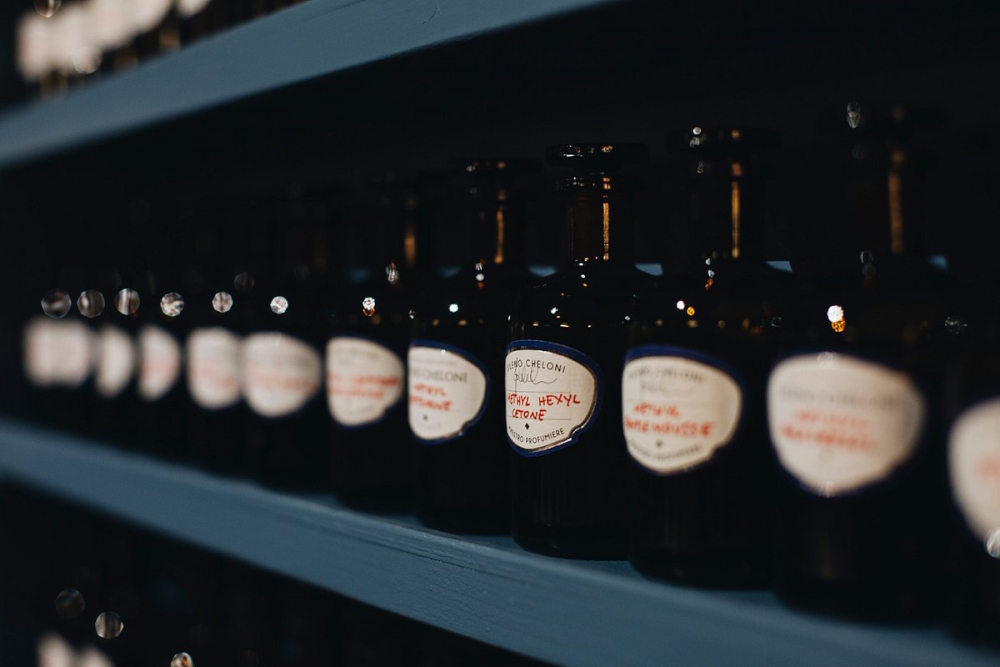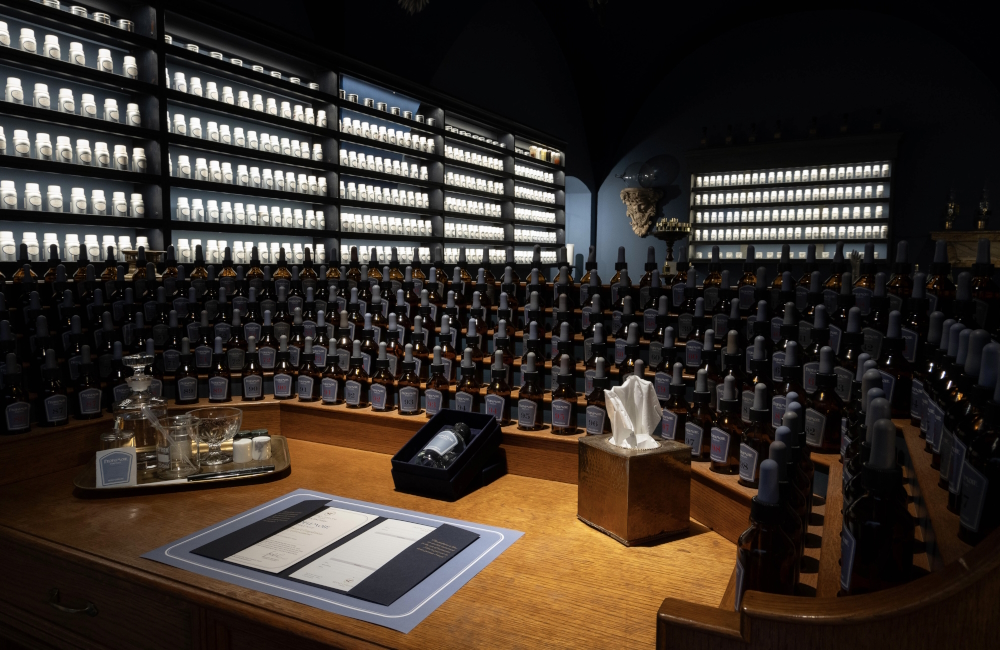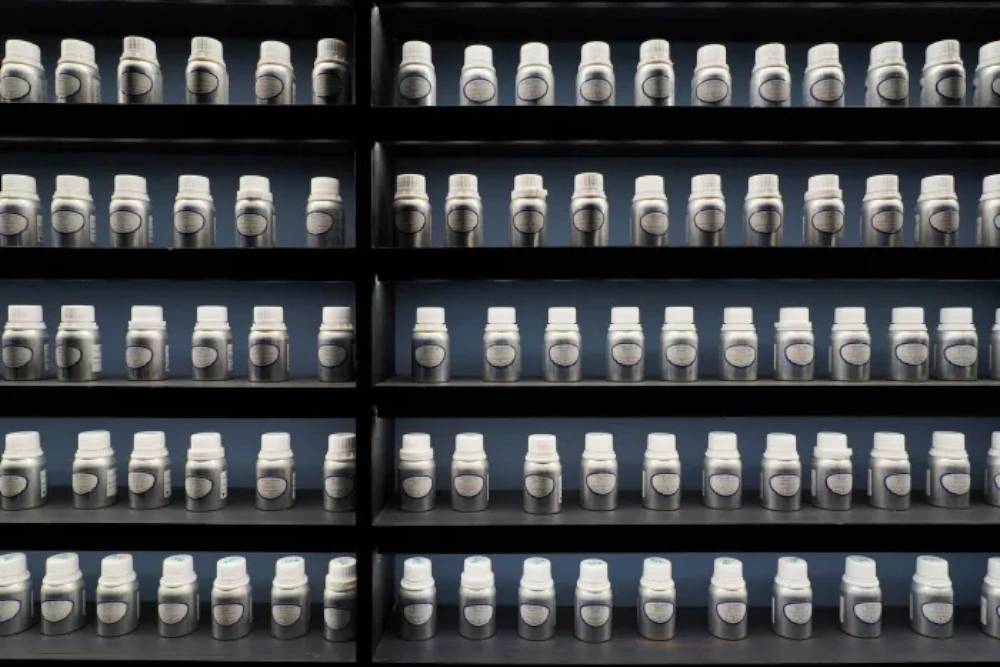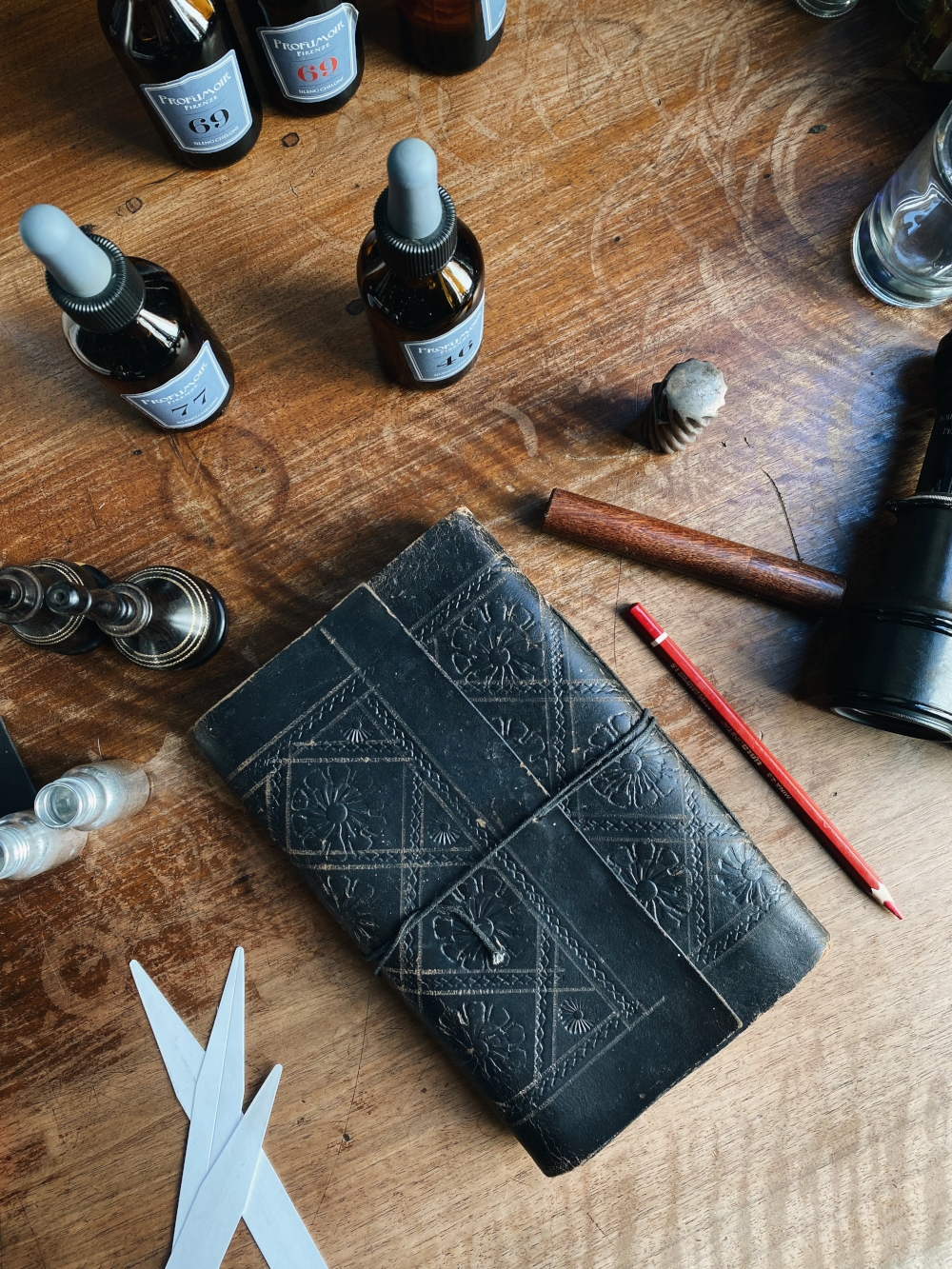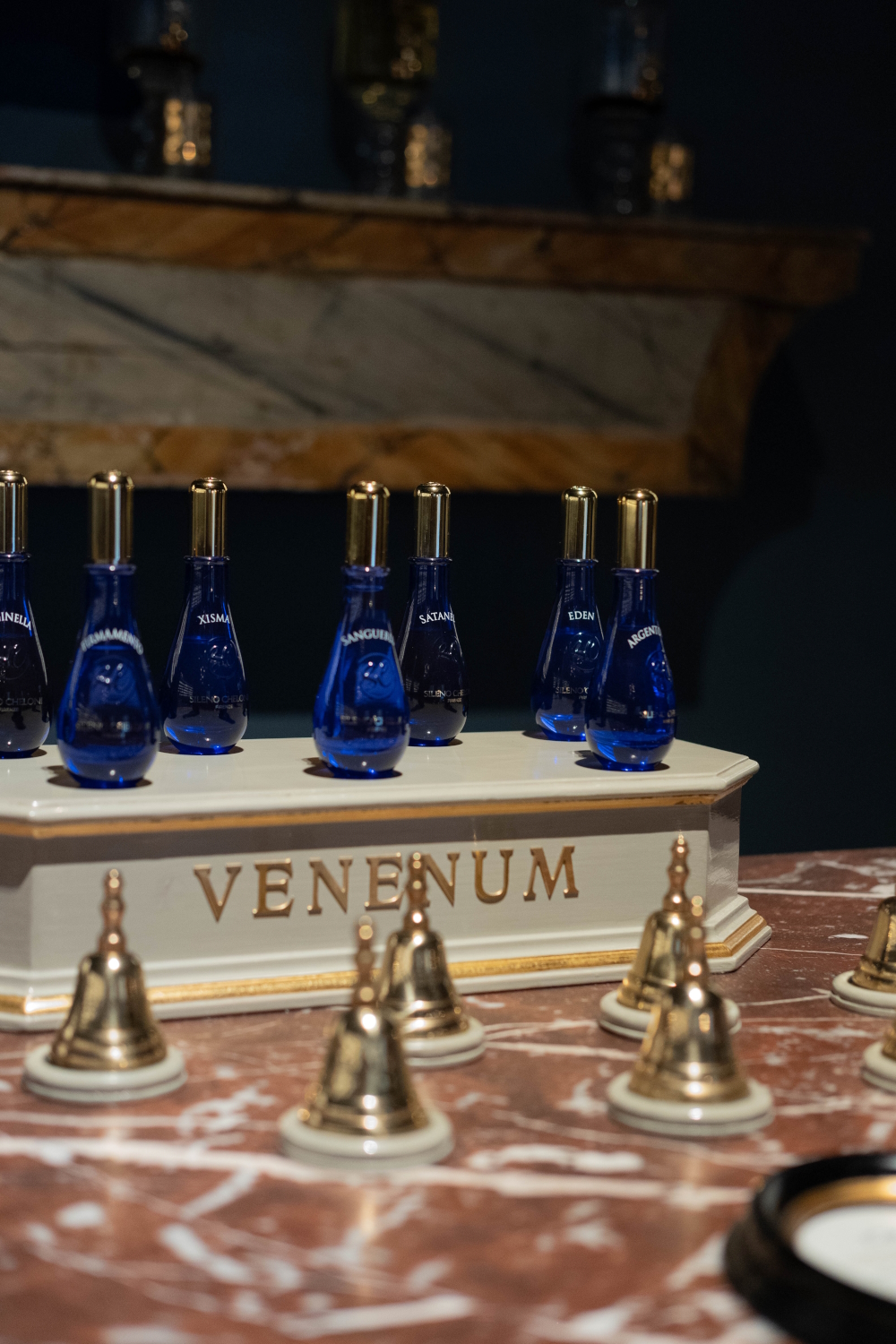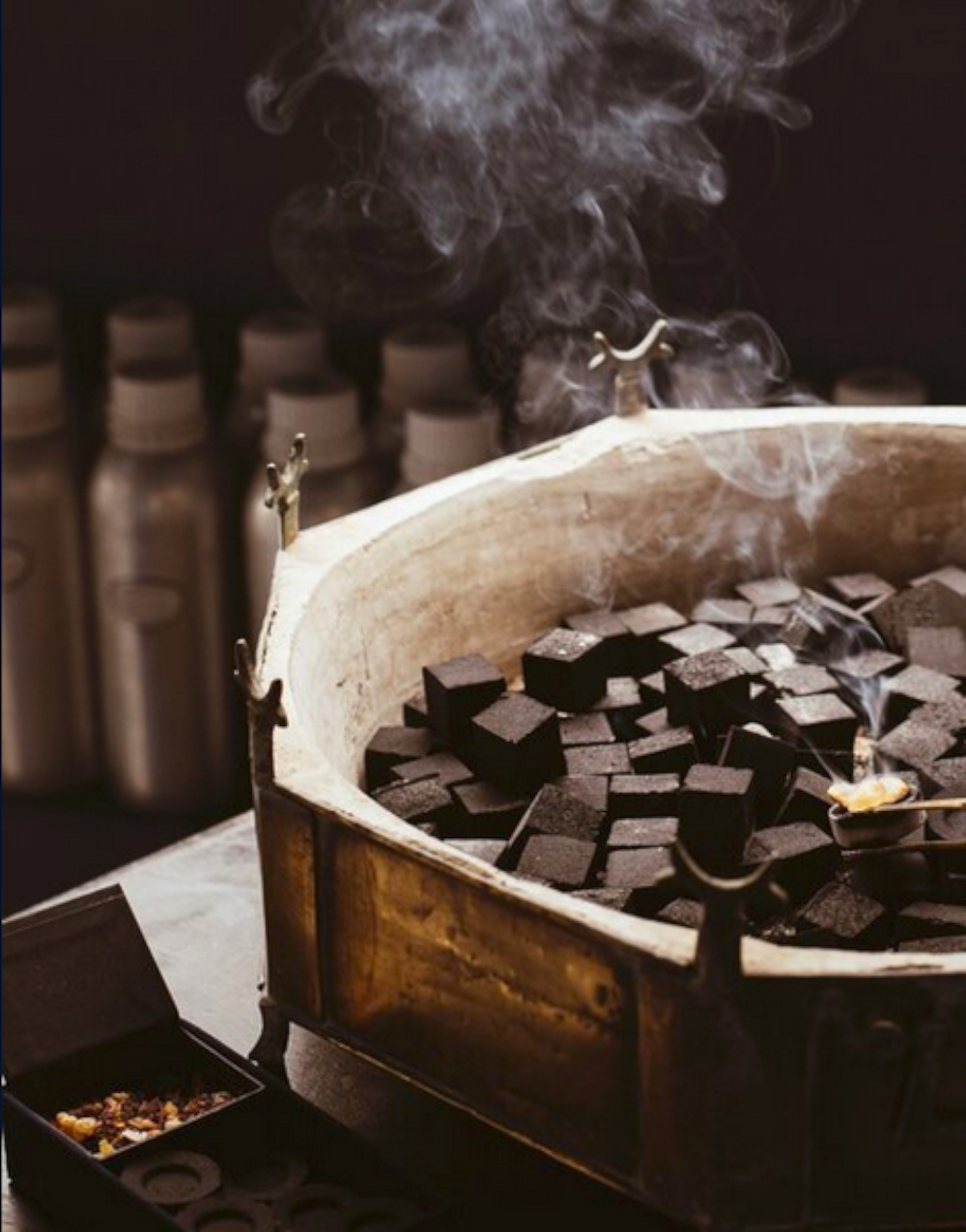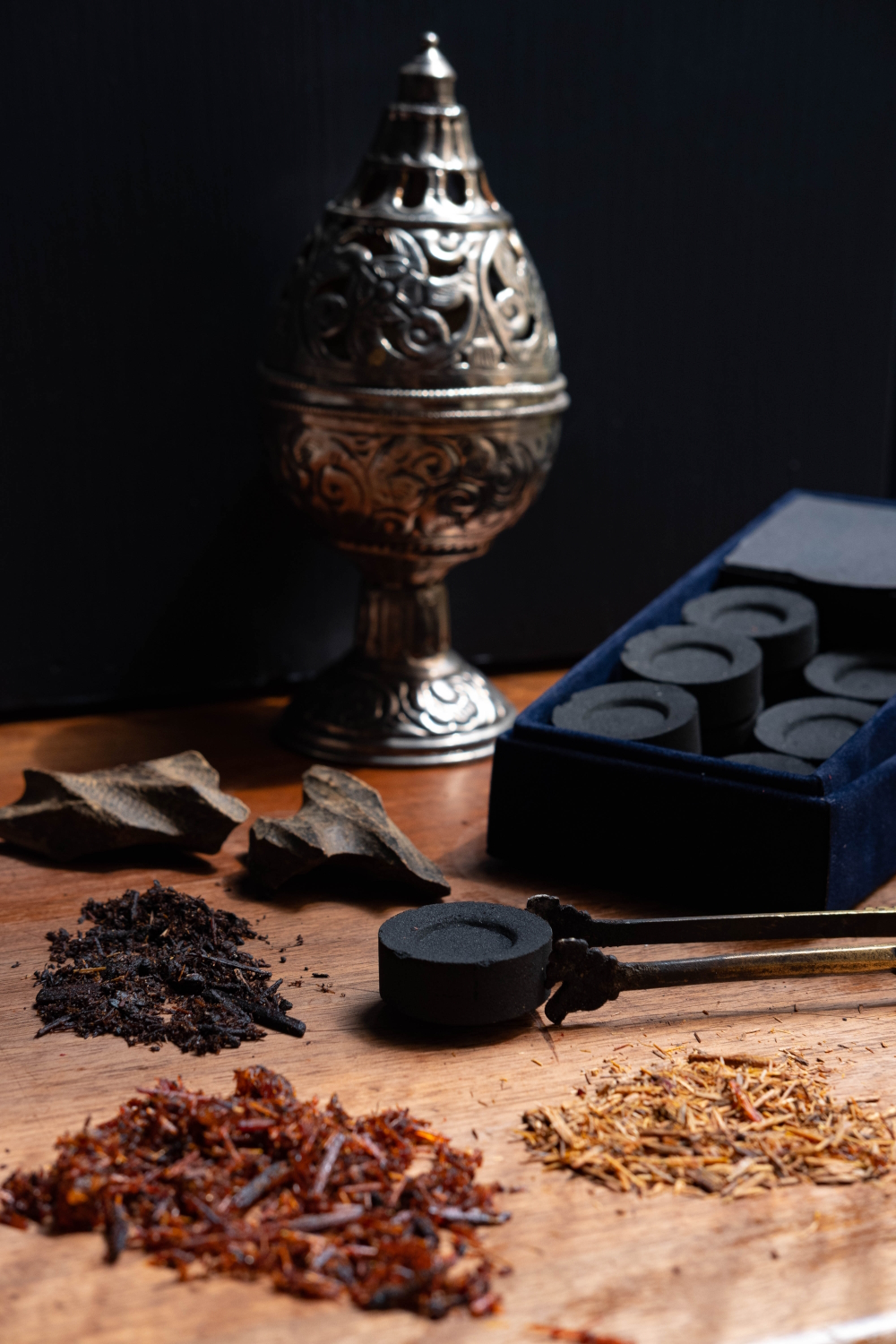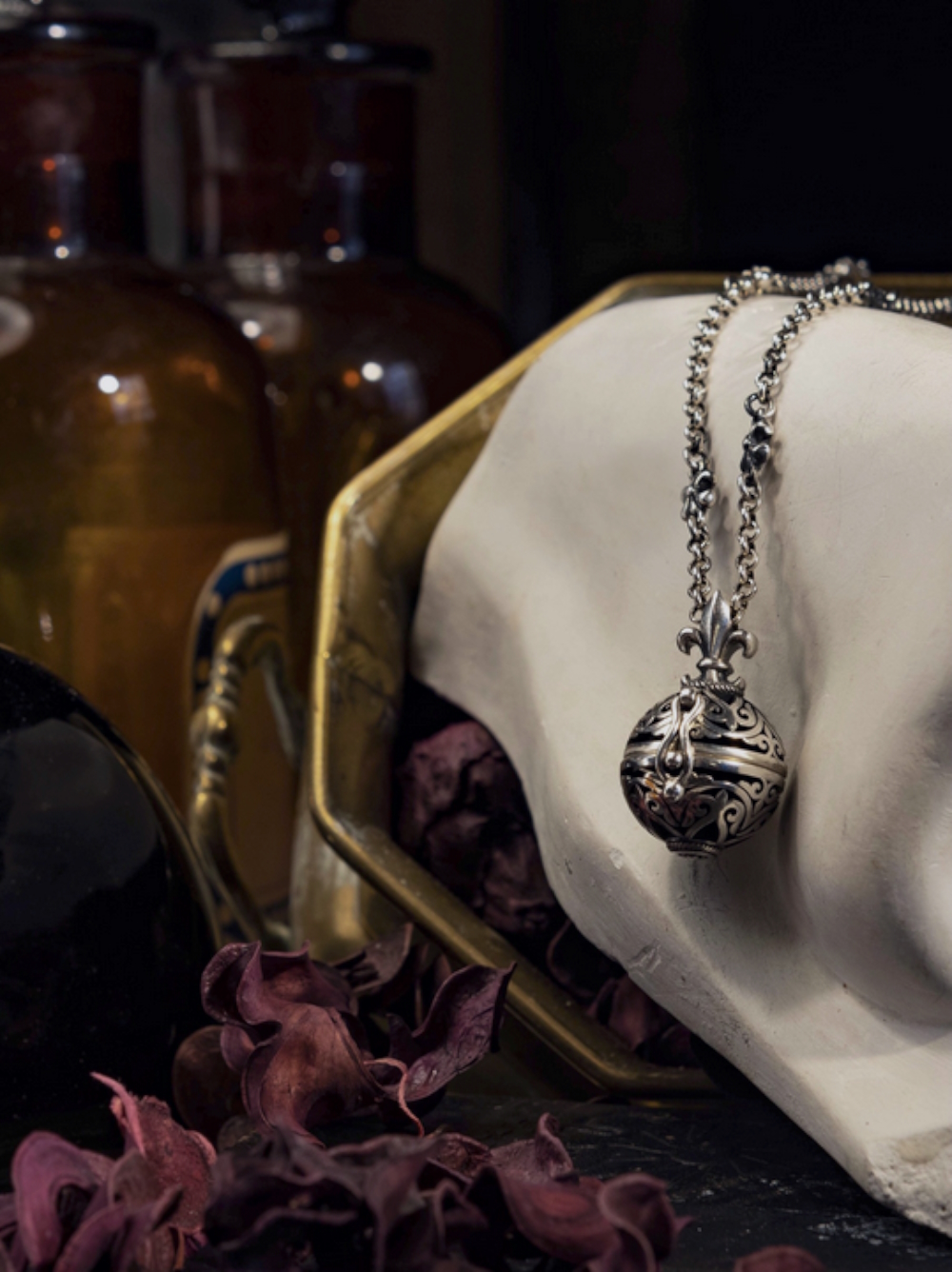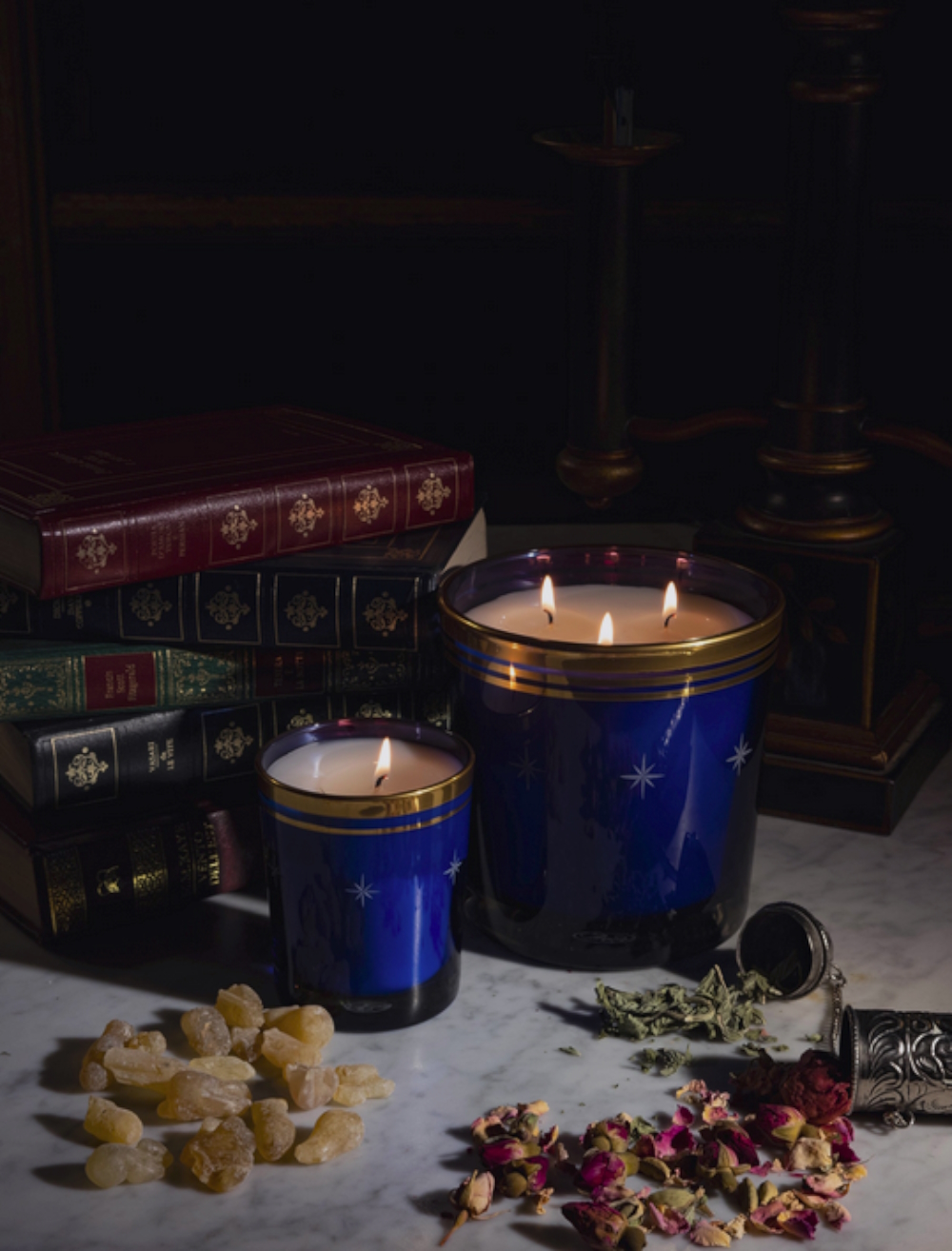Sileno Cheloni
master perfumer of bespoke fragrances
Italy
The signature scent of Gucci‘ stores worldwide was created by him! Oscar winner Helen Mirren ('The Queen*) and Matteo Renzi, the 56th Prime Minister of Italy, too famously desire his perfumes. This native Italian „makes perfume an art“, determines manintown.com, „that he believes ‚elevates to the divine‘, which puts us in touch with our spiritual side“. For mixing such effective fragrances the modern-day alchemist has collected more than 2.000 rare essences worldwide for an one-of-a-kind olfactory library in Florence. Prior to diving deep into the secret world of sensorial experiences and becoming internationally renowned for often unique personalized products, this spritual craftsman studied visual art. But one day he went on a journey that entailed irreversible consequences.
Sileno Cheloni
master perfumer of bespoke fragrances
Italy
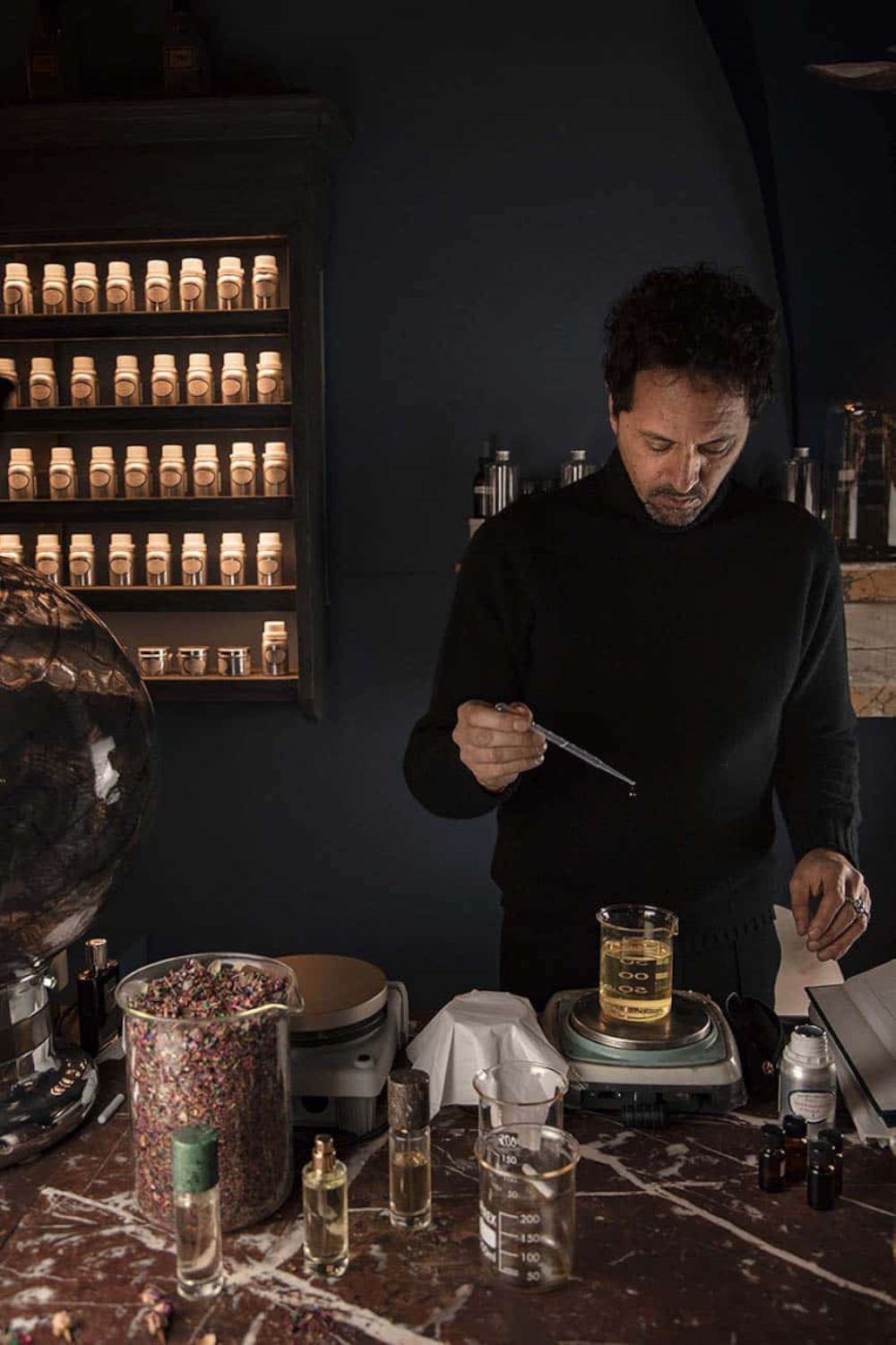
A travel to Cyprus changed the life of Sileno Cheloni (* 16 September 1970). On the third-largest and third-most populous island in the Mediterranean he became known to an important perfumer, rediscovered his love for fragrances and learned the secrets of the art. After having purchased natural, precious essences and oils of ancient charm on Cyprus, Signor Cheloni returned home and started creating the first perfumes out of 50 different, rare raw materials. His „laboratory“ back then was an unusual one: a laundry!
The place of origin for the artisan production might have been a strange one for luxury products, the results met the high standards. The newcomer got the chance to present his creations at Harrods, the legendary luxury department store in London. The debut was a success: hundred bottles of each of the five perfumes were sold. The access to a regulated market not only lucked well, but Harrods became his constant customer.
Nowadays Sileno Cheloni’s headquarter resides in the heart of the Tuscany capital. When the door to the 18th-century former pharmacy is opened, you enter into a different world. It’s styled like a beautifully decorated kind of boudoir. „This visit was beyond beautiful“, writes Alina L. on tripadvisor.com: „You get to dive into a sensorial experience and are truly able to feel that there is thought and heart in every detail. Rarely experienced a place as beautiful as this and never had the chance to create my own fragrance until visiting Sileno!“
The master, who likes to be dressed either in black or white, said about his craft in an interview on mystlery.com: „Creating perfumes is emotion.“ For doing so „creativity, ideas, passion are most important - and a good nose is essential too.“ For developing olfactory compositions he got in more detail on yourweddinginflorence.com: The work of a perfumer resembles that of a musician: it’s like to create something that is immaterial and that is „light, almost invisible“. Regarding the question what makes his perfumes so unique and special, Sileno Chileno answered: „The secret of every work of composition is ‚the truth‘. A perfume that has a fund of thruth takes you to places and in very special moods.“ Therefore each tailor-made fragrance that Sileno Chileno creates for a customer by personal appointment becomes a ceremony of self-rediscovery on a journy of inner exploration in the form of breath. “The perfume without my intervention is nothing, it is only a smell, and likewise I do not feel I exist without the perfume“, he’s quoted on his website. „I don't create fragrances with the aim of perfuming or embellishing, I create them to give you the most precious part of yourself: imbued with dreams, fears and hopes, a suggestion of life itself. I give you the wake to leave after your passage, an indelible and timeless imprint of yourself. A note that belongs only to you and that no one else can own: The essence of life." Considering that statement it’s no wonder that Sileno Chileno compares perfume to an invisible dress that you should have made to measure. It rounds up a personal appearance perfectly. Or as he said on voileblanche.com: „Elegance is the way you wear an outfit that is invisible to the eye!“
Sileno Cheloni lives in Florence, Italy.
Interview March 2024
The alchemy of perfumes: creating an invisible elegant dress
INTUITION/IMAGINATION
?: How does intuition present itself to you – in form of a suspicious impression, a spontaneous visualisation or whatever - maybe in dreams?
I don't dream a dream; I have to search within spirituality. In reaching myself, this is how I find my inspiration. I search for details in life because we don't need to dream; we just need to observe. Observing reality in a deep way is the best approach to gaining creativity and inspiration.
?: Will any ideas be written down immediately and archived?
I keep ideas floating in my mind and I never write them down or act on them immediately; I just wait. I have many ideas, new ones every hour, I think. Eventually, you need to let these ideas simmer, boiling away... and then, after a while, you can find their meaning. What remains in the end is the right one, and that's when you can start working on it.
?: How do you come up with good or extraordinary ideas?
See my previous answer.
?: Do you feel that new creative ideas come as a whole or do you get like a little seed of inspiration that evolves into something else and has to be realized by endless trials and errors in form of constant developments until the final result?
There are two kinds of ideas and inspirations. Sometimes, the result shows up immediately, sometimes it seems too easy. On the other hand, some ideas and projects require long-term work and a long-term approach.
?: What if there is a deadline, but no intuition? Does the first fuel the latter maybe?
Deadlines and intuition are two things that don't always align, but sometimes deadlines drive intuition because you know that you have to deliver something. I've never had problems with creativity; I'm overflowing with it. But when there's a deadline, I have a kind of hard disk in my creative memory, and I always find a way to deliver the right piece at the right moment.
INSPIRATION
?: What inspires you and how do you stimulate this special form of imaginativeness?
Inspiration is a very deep, secret, and unknown thing. You don't really know where it comes from. Many times, I've pondered this because when I first met my master, he gave me the chance to have access to his inspiration, which is connected to the brain, a wider, deeper, and universal inspiration. But honestly, I still don't understand it. I think inspiration is the process, the real process.
?: How do you filter between ideas that are worthwhile pursuing and bad ones that you just let go of?
Usually, good ideas become reality, while the rest remain as wonderful ideas but are impossible to execute. So whenever an idea becomes reality, it's the right one.
?: Does an idea need to appeal to you primarily or is its commercial potential an essential factor?
When thinking about an idea, ultimately, we need to bring our product to the market. Therefore, we have to consider how to sell it, whether it will sell, if it's a new concept, and if it's something that would work. For me, good ideas are always a blend of potential marketability and potential creativity. The best ideas are 100% creative and 100% marketable.
?: Do you revisit old ideas or check what colleagues or competitors are up to at times?
No, I think I share it. I like to share my ideas. But in the end, I have a strong connection with the possibility of the idea's success. I listen to other opinions, my colleagues', but ultimately, I decide. It's more instinctive in the end. Usually not (go back to old ideas). If it's a manifested idea, I never go back to it, but if it's just there, then yes. More than watching them (colleagues, competitors), I enjoy them. I believe what I'm doing is extraordinary and enjoyable, so I appreciate others' work if I like it. If I don't, I don't even approach it. Like a fine perfume or a great collection, I have no problem using it, buying it, or saying it's the best on the market.
CREATIVITY
?: What time or environment best suits your creative work process — for example, a time and place of tranquility or of pressure? Which path do you take from theory or idea to creation?
When I create, I always create the environment first where I can create. I'm more of a multi-sensory artist, and I pay attention to all of my senses. If I want to be creative and create something, I have to create the environment for it first. Finally, there's also a mental creative environment, something I also take care of. Because the external and internal environments need to match to be creative. If there are internal problems, it's very difficult to create, just as it is with external problems. If you're in a cold place, it's impossible to be relaxed and creative, just as it is with internal problems. If you have issues, problems, it reflects in your creativity. The environment and creativity should work together.
?: What’s better in the realization process — for example, speed and forcing creativity by grasping the magic of the moment or a slow, ripening process for implementation and elaboration?
It's a mix of everything, all these ingredients. Sometimes I really enjoy tranquility, slowness, and sometimes I prefer sparkly moments, a full creative process, making it fast. It depends... we're not all the same. It also depends on the moon because if you think about the moon, when the tide goes up and down, it depends on the moon. So we are connected with nature and the forces of nature. Sometimes you feel that you have to sit and do it because you're in that process, in that moment. Sometimes you feel a little slower, and there is low tide, and that's the moment when you have to relax and slow down. And you cannot force it. If you do, you get stressed. Let's go with the moon.
?: How important are self-doubt and criticism by others during such a process?
Well, those are mirrors. They are mirrors where you look at yourself. This is exactly what they are... You need criticism; you need to reflect on yourself in the mirror because this is how you understand yourself. Life without a mirror is okay; it's a different life.
?: Is it better to be creative on your own, to trust only your own instincts, or to work in a team?
100% on my own. We are ultimately alone in our journey; from birth to death, we traverse this world alone. However, there are moments of shared creativity with others—artists, individuals from all walks of life—each expressing their creativity in unique ways. While collaboration is essential in blending your creativity with that of others, the act of creation itself remains entirely your responsibility.
?: In case of a creative block or, worse, a real failure, how do you get out of such a hole?
Fortunately, we're multisensory beings, so there are other senses that you can actually create with, and exploring other forms of art will help me to go back to my original form of art and renew it and not get bored. I think an artist should be 100% multisensory and multidisciplinary in terms of interest, in terms of immersing yourself in something like this, even cooking, even serving, even music, painting, photography, architecture, you should involve yourself in any kind of form of art, and that's how you enrich your process and perception of creating. And you don't get bored. As what's happening, when you start to do creative work as a job, in the end, what you get as satisfaction is moved to the result, and most of the time is the economic result of it. So when you're there, you don't feel the pleasure anymore of creating, but on selling your creations. So you should always find the form of art that nourishes you, which is not your job, that's how you get back to your emotion, nutrition of your creativity. Then you can still move that creativity to the job, otherwise, the job becomes a job, and once it's a job, it's economic, it's a problem, it's solving problems… or if there are no problems, then it's to make more, more and more, more success and then you move your satisfaction to success but not in the process of creating the product. So you have to go back and find something that inspires you and bring it to your job.
?: Should a creative person always stay true to him- or herself, including taking risks and going against the flow, or must the person, for reasons of commercial survival, make concessions to the demands of the market, the wishes of clients and the audience’s expectations?
It depends on what number you are. If you refer to numerology, for example, I have in my character the number 6, and number 6 is a number that needs to be protected, needs help, and I have this in my character and I reflect it in my business, so number 6 is always to be secure, always needs a partnership and this is a part of the character of people, you have to beware of it and take risks and work on this kind of aspect of your personality in order to be free. So…there is no complete answer on that, but when you choose, are you choosing out of necessity or are you choosing because it's better for your profession, creativity, work… These are the questions people should ask themselves.
?: How are innovation and improvement possible if you’ve established a distinctive style? Is it good to be ahead of your time, even if you hazard not being understood?
Well, the dream of the artist is always to be ahead of your time, to have the personality to lead a creative process. But this doesn't depend on you. What depends on you is what you feel comfortable with and how to translate the form of art that you're working with into something that's understood by the market, other people, the audience. So this is the key point. Because to be ahead of your time is nice, but I can be ahead of the time most of the time and it's gonna be an illusion… so if you want to live in reality, what you have to do is to work with your illusion, that's it.
?: When does the time come to end the creative process, to be content and set the final result free? Or is it always a work-in-progress, with an endless possibility of improvement?
Well… I can respond to this with the famous answer of Jackson Pollock. There was a journalist who asked him, 'How do you know when a painting is finished?' And Pollock's answer was, 'How do you know when you have finished making love?'... When it's finished, it's finished; there is no review. You can't go back and say, 'I'll make love again.' It's not possible; it's finished. Then, you move on to other avenues and endeavors. I believe there is a similar point in perfume creation. While perfumery involves mixing raw materials, sometimes hundreds or thousands of them, there comes a moment when you feel that it's done, it's complete, and you cannot make it any better or worse.
?: How does artificial intelligence change human creativity? And do you? Would will you use it at all?
I believe everything in life is welcomed and manageable, and I don't think there's a single machine that can replace genuine creativity. AI serves to inspire artists to be authentic, rather than simply replicating existing content. It's a positive development for humanity as it encourages genuine creativity and intelligence
SUCCESS
?: “Success is the ability to go from one failure to another with no loss of enthusiasm.“ Do you agree with Winston Churchill’s quote?
Yes, of course, we always have to agree with Winston Churchill's ideas (laughing). And I think he's right, he was the king of communication, nothing to comment on this.
?: Should or can you resist the temptation to recycle a ‘formula’ you're successful with?
No, I never do it. As I told you before… You've created a child and you cannot go back and change it, the child is there, when you have your son, you don't want to see him with a longer nose, bigger eyes or whatever… It's there, you love him as he is, and it's the best thing you have done at the moment. It's the biggest gift of nature.
?: Is it desirable to create an ultimate or timeless work? Doesn’t “top of the ladder” bring up the question, “What’s next?” — that is, isn’t such a personal peak “the end”?
Every time I finish something, I create something, for me it's always a final thing. I always say “I got it, I've done it, and I don't know how to make it better“, as at that moment you gave everything, just you're finished, you squeezed all your creativity and it seems like it's the last one, this is what you feel. And then suddenly after a while and you cannot push this, you start to feel something else, feel again, the necessity of creating something and for this you can wait for a day, an hour or one year, you don't know. In the meantime you have to work, create and you have maybe worked on some ideas that you had, pull out them…This also has the season of what you're creating, there are seasons. When you've reached the top point of your creativity then you need the time to consume it in many ways. And then there will be another step, and you don't know when it will happen and if it will happen…
MY FAVORITE WORK:
SangueBlu.
It's difficult to say because when you create, you create for yourself. But I have to say about one fragrance that I have really created for myself - SangueBlu. I think it's a fragrance to which I'm more identical, that represents exactly what I deeply like and love in fragrance, so for me that one is a very extraordinary fragrance, but it doesn't mean that it's the best one, it means that it's the one that I still reflect myself and my spirit.
